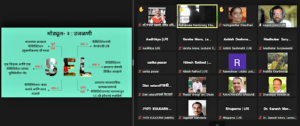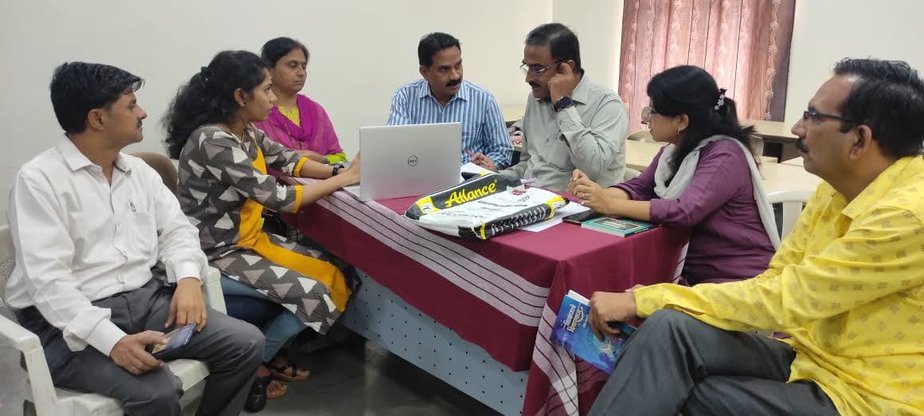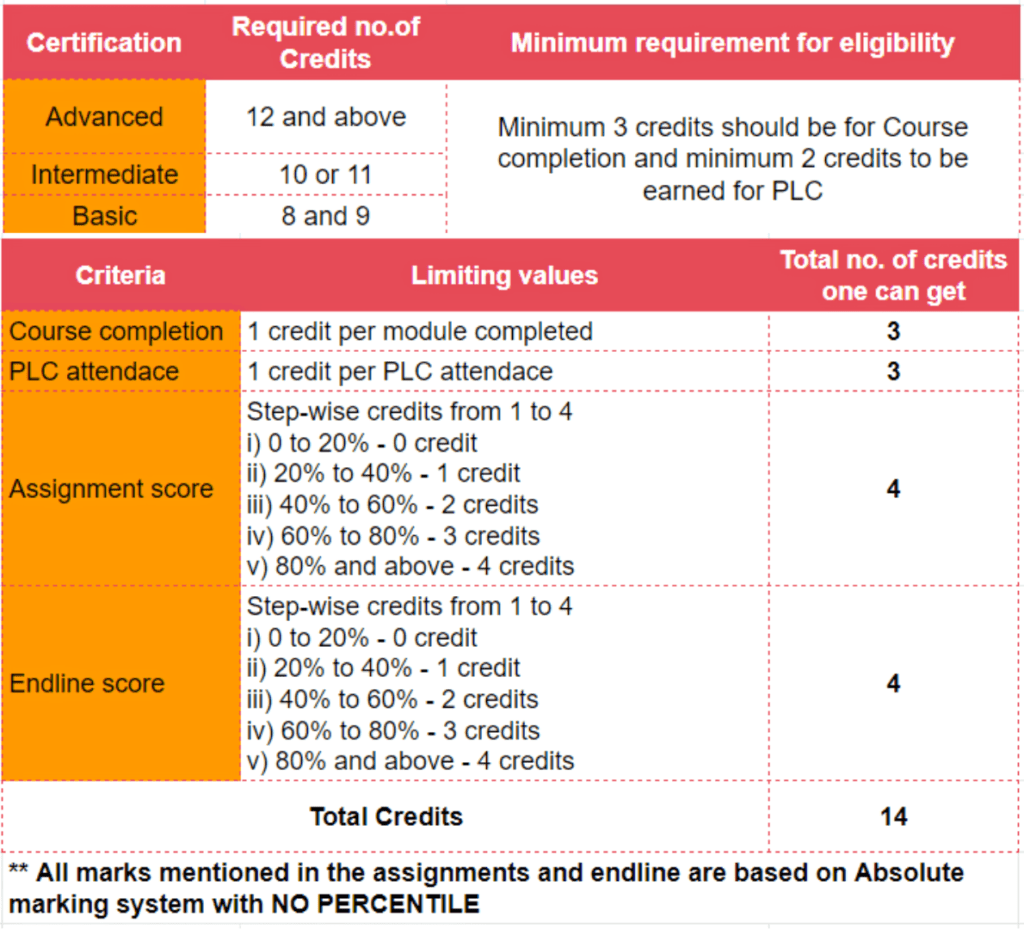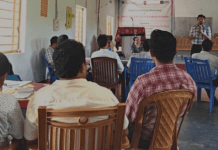This is the second in a three-part series in collaboration with Leadership For Equity (LFE) highlighting the challenges and needs, administrative and technological, of the officers in Maharashtra’s Education Department, who play a crucial role in building the education system of the state. Read Part One here.
Every week, in addition to her daily work, Sudha More spends 3-4 hours learning new skills for her personal and professional growth. She is a senior lecturer at the District Institute of Education and Training (DIET), Maharashtra for the last 13 years. Sudha is one of the many officers in Maharashtra’s education system who are part of a unique leadership program offered by the Maharashtra Institute Of Educational Planning and Administration (MIEPA) in collaboration with Leadership For Equity and CISCO India Cash Grant Program. This self-paced and conveniently accessible program, known as the Leadership Enhancement and Academic Development (LEAD), was introduced in 2020. LEAD is a dedicated blended learning program for the professional development of officers in the middle management of the education system.
LEAD is a credit-based, blended certification program offered, consisting of self-paced online modules, peer-learning community meetings and contextual subjective assignments, which has several practical takeaways that can enhance the day-to-day work of the education officers.
Part One of this series discusses the details of the needs analysis study of the officers in Maharashtra’s Education Department. Based on the study, the top four need areas identified for officers’ professional development were team management, documentation and knowledge management, impact evaluation of programs, and personal development through managing self and time. Let’s get to know about the innovative intervention that provides such opportunities to the middle managers from the education department.
Addressing Professional Needs and Overcoming Technological Challenges
Just like Sudha, several officers in Maharashtra’s education department have voluntarily joined this first-of-its-kind blended certification program that aims to build the capacities of the education officers. With over 600 officers enrolled till date, what does it take to devise and implement an innovative technological solution for the professional development of officers?
While developing the LEAD, careful thought was put in to ensure that the program is inclusive, caters to the needs of officers, and addresses the technological restrictions. The larger aim of LEAD is to evolve into a self-sustaining mechanism within the government which is capable of meeting the ever-changing professional development needs of officers across Maharashtra. At the core of the program are the four rationales which dictate the design of the entire course: courses based on officer needs; effective inclusion of technology; peer learning; relevant, contextual and research-based content created for officers.
An Overview of Technological Challenges that Education Officers Experience
Technology has a primary role in today’s government offices. Where the inclusion of technology has been beneficial for making the work easy and less burdensome for some officers. The others face difficulty in coping with the advanced techniques of data collection and management, record keeping, etc. Some cluster heads who are not very tech savvy and towards their time of retirement struggle a lot in technology. The officers stated that they try to train other officers to improve and maximise digital work. Whereas the officers pointed out that there is very little guidance and training to enhance the skills of the officers. The officers also said that they have to invest extra time into training the clerks as per their requirement.
As the world grappled with the COVID-19 pandemic and school closures, LEAD was equipped to continue effectively despite the constraints of the pandemic and the geographical spread of the officer. This was possible due to the inclusion of user-friendly technological tools that LEAD is equipped with. The course modules are designed and created regional languages such as Marathi and Hindi using the Articulate Storyline 360 authoring tool, which was made accessible to the participants through the Firki Platform. This makes LEAD first-of-its kind credit-based course developed for education officers, who will receive certification from MIEPA based on their course performance.

The Firki Platform is a Learning Management System, which can be accessed on all devices and once downloaded, the learning modules can be consumed in offline modes as well. The course has been designed on Articulate Storyline 360 which is a widely used tool worldwide to create interactive learning experiences, which includes questions, animations and professional voice over to narrate the course. This tool has helped LEAD go beyond the traditional method of training with PPT, to a more interactive and engaging format which captures the attention and curiosity of the officers. The platform is extremely easy to use and does not require much effort from the officer’s perspective to navigate and access the modules in the courses. Once the files of the course are downloaded, the platform can be accessed in offline modes allowing officers from regions with low internet connectivity to be part of the course. Most of the course participants consume the courses through their mobile devices, and so the design was modified to cater to this requirement. While developing, the team worked on creating data management sheets for the courses, so that the course monitoring, credit-related calculations, as well as data-based decision-making, could become easier.
Since the launch in December 2020, the program, has successfully completed three courses—effective monitoring and evaluation, team management, and social-emotional learning. As many as 460 officers have benefitted from these courses with an average of 25% increase in their performance. To further make the learning experience widely accessible, Peer Learning Communities (PLC) sessions are organised on Zoom. Nishigandha Chaudhari, a lecturer at DIET, who participated in the socio-emotional skills course was greatly impacted by the course content and the use of technology. This has inspired her to start a YouTube channel, where she creates content for her fellow officers based on the useful practices of team management, facilitation, ice breaker activities, and school visits.
What Makes LEAD’s Skills Development Approach Unique
What makes LEAD different from other professional courses is its emphasis on peer learning. At every stage of the program, PLCs are conducted to discuss course learnings and reflections. PLCs are facilitated in an engaging manner, to bring out maximum participation from officers, with hands-on activities in small groups.
I found the monitoring and evaluation course very useful in my daily official work. The concepts and tools taught in this course such as task tracker, monitoring framework, etc are useful. The thing which I liked the most about the course is the PLC meeting. It provides an opportunity to revise the concepts and discuss the thoughts and reflections with peers.
—Dr. Seema Pusadkar, a participant of the monitoring and evaluation course

The course content has been developed with thorough research and reviews from subject matter experts and government bodies. Contextual case studies and examples from officers’ day-to-day work make the course content relevant and practical. The LEAD program is constantly developing and evolving to cater for the needs of officers by taking into consideration their contextual factors and technological limitations. Since officers from remote locations across Maharashtra are participants in the course, all the technological aspects have to be tuned to be inclusive . This is achieved by taking detailed feedback from the officers on various pointers such as quality and relevance of online modules, the effectiveness of PLCs, technical support from the LEAD team, and more. The data from the feedback, along with responses provided from assignments, is monitored and evaluated to improve the overall quality of the courses under the LEAD Program.

The course is reviewed frequently to assess the changes that need to be made. Based on detailed feedback from participants on the content of the course, modifications are made to enhance user experience and interface, and in turn user participation. Added effort is put in to ensure that the courses and allied activities are engaging and provide an enriching experience. For instance, to increase participation in the SEL course and PLCs, a WhatsApp-based group activity was conducted with the participants. The activity consisted of a weekly prompt, in which the participants were asked to share their experiences. One such prompt was asking the participants to share a photo of any object which they have kept with them since childhood, followed by writing their memories of the object. This activity aims to make the participants comfortable with sharing their feelings with others and being more engaged in the subsequent PLCs. The facilitation techniques during the course include certain do’s and don’ts of facilitation, emotional checking, and more which helps in addressing the professional challenges such as managing stress at workplace and self-management.
Through the SEL course, we [education officers] realised that daily meetings can also be conducted using facilitation techniques. The course also covered various activities to help us manage personal and professional challenges.
—Gangadhar Vithoba Walale,
Senior Lecturer, DIET Nagpur
To make the process of participant support streamlined and less people-dependent, a chatbot-based service capable of addressing individual queries is being integrated into LEAD courses. Through this process of trial and error and a well-defined system of feedback mechanisms, the LEAD program has evolved to meet the changing needs of officers to effectively implement public education policies.

A significant takeaway while designing the LEAD Program has been the effectiveness of technological interventions to bring together Maharashtra’s education officers—from diverse contexts and geographical locations—to form an online community-based program for their academic and professional development. Systemic overhauls such as these are required in government departments that facilitate provisioning of welfare services such as education. As the complexities on-ground increase, the cadre working in these essential departments will need to build capacity to serve the needs of the target population. This requires meaningful partnerships—with the government to execute policies, corporates to provide aid and experience, and organisations to assist with research and implementation—to co-create opportunities that foster the professional development of officers in the education department.
The third and final part of this series will capture the learnings and effective practices that have evolved during the design and implementation of the LEAD Program.
The featured image is of a team member from Leadership for Equity at MIEPA facilitating a LEAD course; courtesy of Leadership for Equity.





